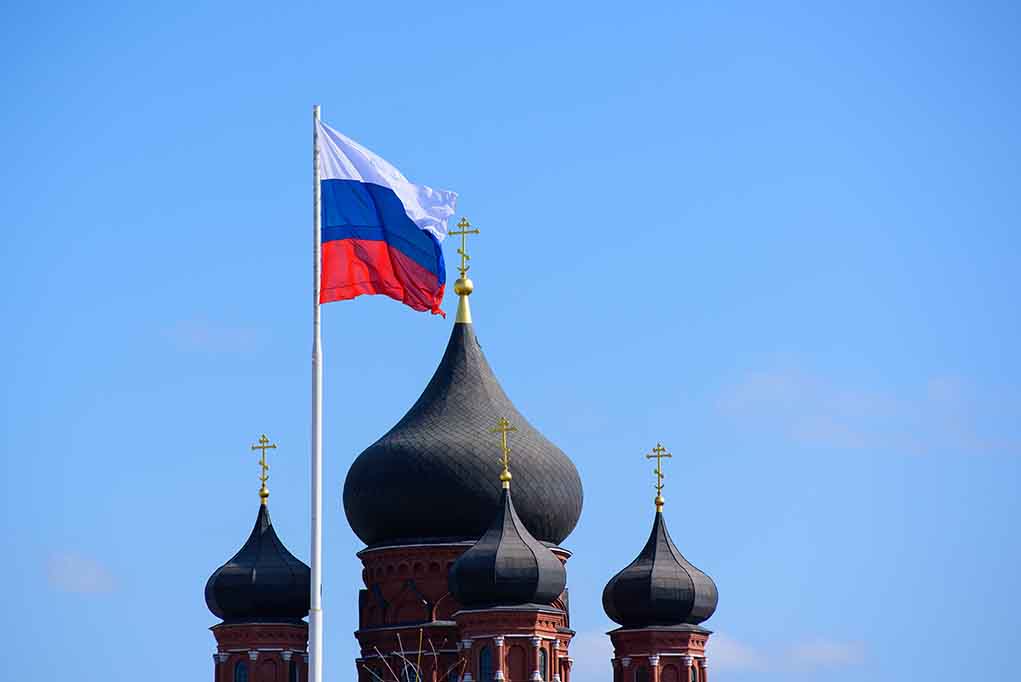
President Trump boldly rejected Putin’s offer to mediate the Israel-Iran conflict, telling him to focus on Russia’s own war in Ukraine first, as Moscow warns against US military support for Israel.
Key Takeaways
- Russian Deputy Foreign Minister Sergei Ryabkov warned that US military aid to Israel would “radically destabilize” the Middle East
- President Trump dismissed Putin’s mediation offer for the Israel-Iran conflict, suggesting he focus on Russia’s Ukraine situation
- The Pentagon is providing Trump with military options regarding Iran as tensions escalate
- Trump has warned Iranian citizens to flee Tehran and cut short his G7 trip for urgent consultations in Washington
- Trump has expressed a firm stance on preventing Iran from acquiring nuclear weapons, indicating potential military action
Russia Cautions Against US Military Support
Russian Deputy Foreign Minister Sergei Ryabkov has issued a stern warning to Washington against providing military assistance to Israel amid rising tensions with Iran. The warning comes as President Trump takes a harder stance against Iran’s nuclear ambitions and potential threats to Israel. Moscow’s position reflects concerns that American military involvement could trigger a wider regional conflict, with Russia emphasizing its diplomatic approach to both nations involved in the dispute.
“We caution Washington against even speculative, hypothetical options of this kind. It would be a step that would radically destabilize the entire situation,” said Sergei Ryabkov, Russian Deputy Foreign Minister.
Russia’s position contrasts sharply with the Trump administration’s approach, which appears to be leaning toward robust support for Israel. This diplomatic tension highlights the competing global influences in the Middle East, with Russia attempting to position itself as a mediator while the United States maintains its traditional alliance with Israel. Ryabkov’s statement underscores Moscow’s concern that American military involvement could upset regional stability and potentially draw more powers into the conflict.
Trump Rejects Putin’s Mediation Offer
In a decisive response that reaffirms America’s independent foreign policy approach, President Trump has rejected Russian President Vladimir Putin’s offer to mediate the growing Israel-Iran conflict. During what Trump described as a recent phone call, he redirected Putin’s attention to Russia’s own international challenges. The exchange reveals Trump’s prioritization of Israel’s security concerns over diplomatic initiatives from nations with competing regional interests.
“I spoke to him yesterday. He actually offered to mediate. I said, ‘Do me a favor. Mediate your own. Let’s mediate Russia first, OK?” said Donald Trump, President of the United States.
The timing of the call became a point of contention when Kremlin spokesperson Dmitry Peskov downplayed Trump’s statement about the conversation being a birthday greeting. Trump’s firm rebuff of Putin’s mediation offer signals his administration’s intention to handle Middle Eastern affairs without Russian involvement. The President’s stance aligns with his campaign promises to reassert American leadership in global affairs and reduce dependence on international mediation in matters involving key allies.
Escalating US Response to Iranian Threats
President Trump has dramatically escalated his rhetoric regarding Iran, warning of potentially significant military actions if Iran continues pursuing nuclear weapons. Defense Secretary Pete Hegseth confirmed that the Pentagon is actively providing Trump with military options as tensions rise. In a move that signals the seriousness of the situation, Trump cut short his G7 trip to return to Washington for urgent consultations, highlighting the administration’s prioritization of this growing security concern.
“He was speaking figuratively. Life is so eventful right now that looking back a few days is like looking back to yesterday,” said Dmitry Peskov, Kremlin spokesperson.
In a startling revelation, Trump claimed knowledge of Ayatollah Khamenei’s whereabouts while warning Iranian citizens to evacuate Tehran, suggesting potential targeted military action. Despite these heightened tensions, Trump intends to attend the upcoming NATO summit in The Hague, balancing international diplomacy with addressing immediate security threats. The administration’s firm stance against Iran’s nuclear ambitions represents a continuation of Trump’s longstanding position that preventing Iran from obtaining nuclear weapons remains a non-negotiable priority for American foreign policy.
International Reactions and Diplomatic Tensions
Iran’s UN mission has vehemently denied reports that Iranian officials sought talks with the White House, further inflaming diplomatic tensions. The mission criticized Trump’s statements as counterproductive to regional stability, reflecting the deep mistrust between Tehran and Washington. As regional alliances shift, Russia’s warning against US military aid to Israel appears partly motivated by Moscow’s own strategic interests in maintaining influence across the Middle East, particularly given its ongoing relationships with Iran.
President Trump’s approach signals a clear departure from previous administrations by demonstrating a willingness to use America’s military strength to protect allies and deter adversaries. This strategy aligns with conservative principles of peace through strength and prioritizing America’s national security interests. The administration’s positioning suggests that unlike previous diplomatic engagements that yielded limited results with Iran, Trump is prepared to back diplomatic pressure with credible military options if necessary to prevent Iran from threatening regional stability.

